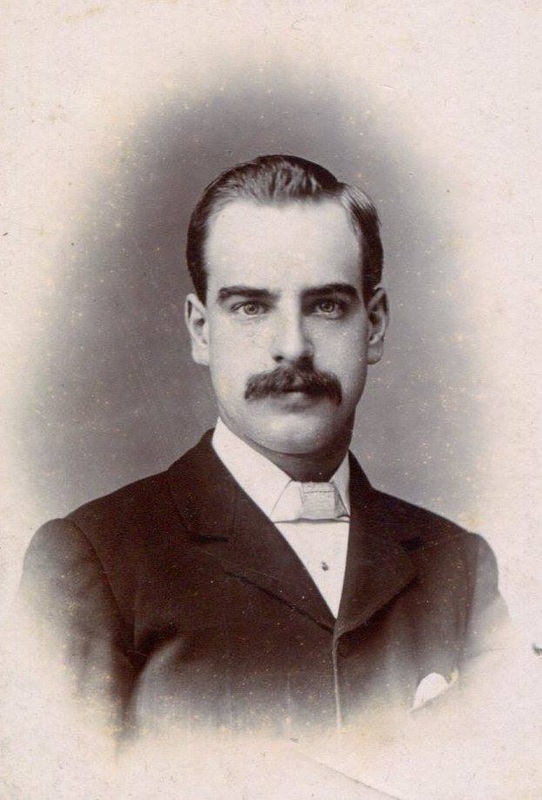You can see more of his work at http://www.jhmaw.co.uk
|
Professional photographer John Maw took this wonderful shot of our instruments for the LME website and Facebook page. He just happens to be a terrific mandola player too!
You can see more of his work at http://www.jhmaw.co.uk
0 Comments
Benjamin Michell Jenkins was born on 9 July 1868 in Bethnal Green, London, to parents of Cornish descent (the name Michell was his mother’s maiden name). He was the youngest of six sons, two of whom died in childhood. Little is known of his formative years which were spent in and around Bethnal Green where his father owned a grocery business. Throughout his life he suffered from a leg defect, possibly from birth, which made walking difficult and in the language of the time he was described as a cripple.
In common with the children of most middle-class families in the Victorian age, Benjamin learnt the piano and showed musical talent. By his early 20s he was tuning pianos for the firm of André and Company in Hackney and took a particular interest in the mandolin and other plucked instruments as a pupil of his employer, Professor Carl André. The records show that Benjamin was already conductor of Professor André’s Mandolin and Guitar Band (30 performers) at a concert in London in 1891 at the age of 23, taking over from the Professor who had recently died. In the following year he was listed as a mandolin and guitar teacher at The Polytechnic, an institution founded in London by the philanthropist Quintin Hogg in 1881, later becoming The Regent Street Polytechnic and now the University of Westminster. He also taught at the People’s Palace (now Queen Mary, University of London). The mandolin instruction book he wrote is known to have reached many thousands of pupils since six editions were published, supplemented by a book of mandolin exercises. As the number of his pupils (mainly women) increased his concerts became more ambitious with a first concert at Crystal Palace in 1893 and by 1896 he is already credited with conducting the largest band of its kind in England comprising instrumentalists from The Polytechnic and People’s Palace, also giving concerts at the Queen’s Hall and other London venues. A Crystal Palace concert review of a concert in 1899 reports that the hall was crowded with standing room only. “The combined bands numbered some 150 performers, of whom quite 130 were ladies, clad in dainty white dresses with graceful ribbons of varied rainbow colours attached to their mandolins…..A really fine programme was offered, and to those who had never previously had the opportunity of listening to a mandolin band, the effect must have been charming. The tinkling sound usually associated with the mandolin was entirely absent…” Elsewhere it is reported that he had 217 students at that time and a total of over 2,000 had been through his classes. The various bands continued to prosper during the early years of the 20th Century and a schedule of events in 1909 refers to concerts at Queen’s Hall, Crystal Palace, the Royal Albert Hall and elsewhere. After the Great War, Mr Jenkins assisted blind ex-servicemen by teaching them to play mandolin and guitar, also providing instruments for their use since new ones were unobtainable during the early post-war period. Concerts and teaching resumed in the 1920s and continued until Mr Jenkins’ retirement from The Polytechnic in 1930 when he was presented with a retirement present of a clock which is in the possession of the writer of this article who also holds many items of memorabilia relating to the musician. His sudden death at his Chardmore Road home in Hackney on 17 October 1931 aged 63 was reported in The Polytechnic Magazine where he was described as the originator and founder of the Mandolin Band and tribute was paid to the devoted time and service which he gave ungrudgingly, winning the affection of all its members. He was unmarried. In his will he bequeathed the bulk of his estate to two orthopaedic institutions. John Greig (BMJ’s Great-Nephew) April 2013 |
The LME blogPlayers, music and plucked strings. Archives
February 2024
Categories |



 RSS Feed
RSS Feed